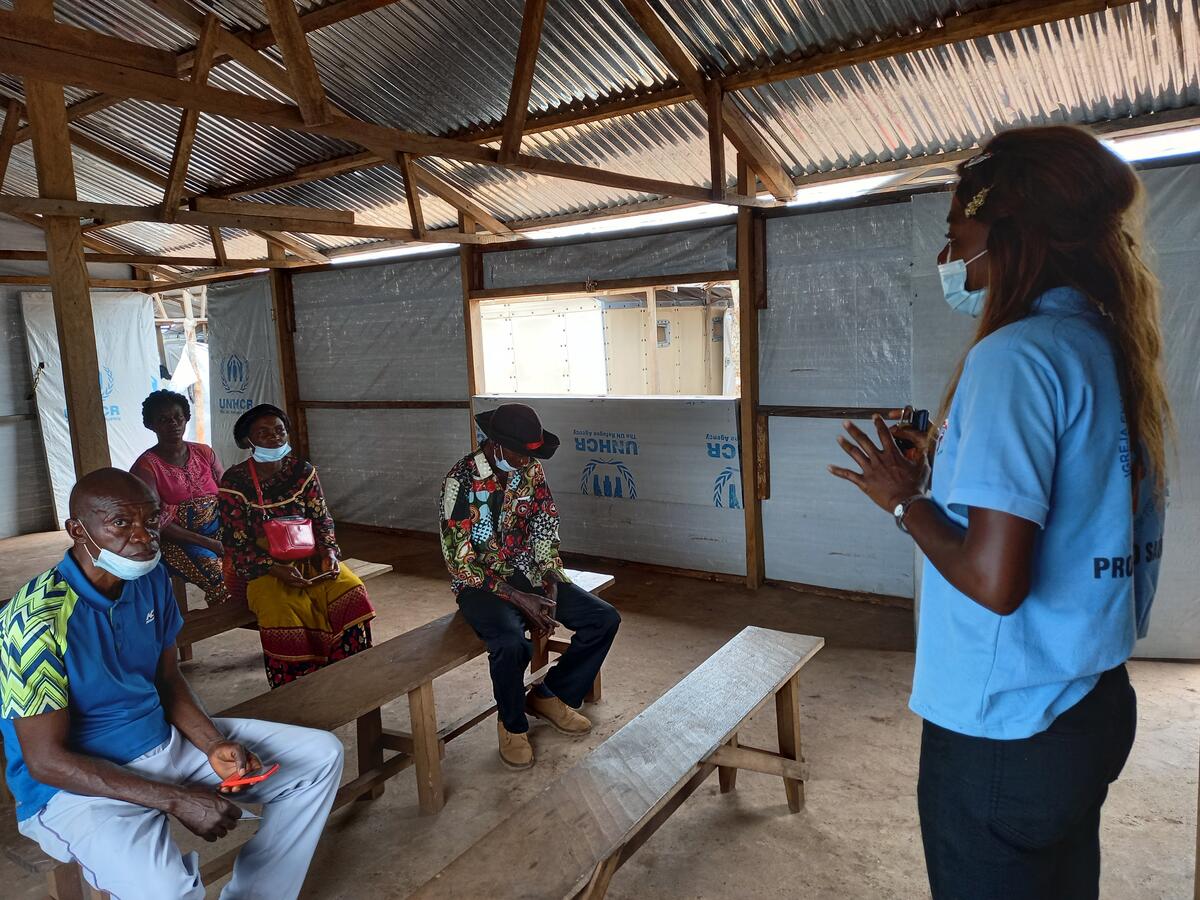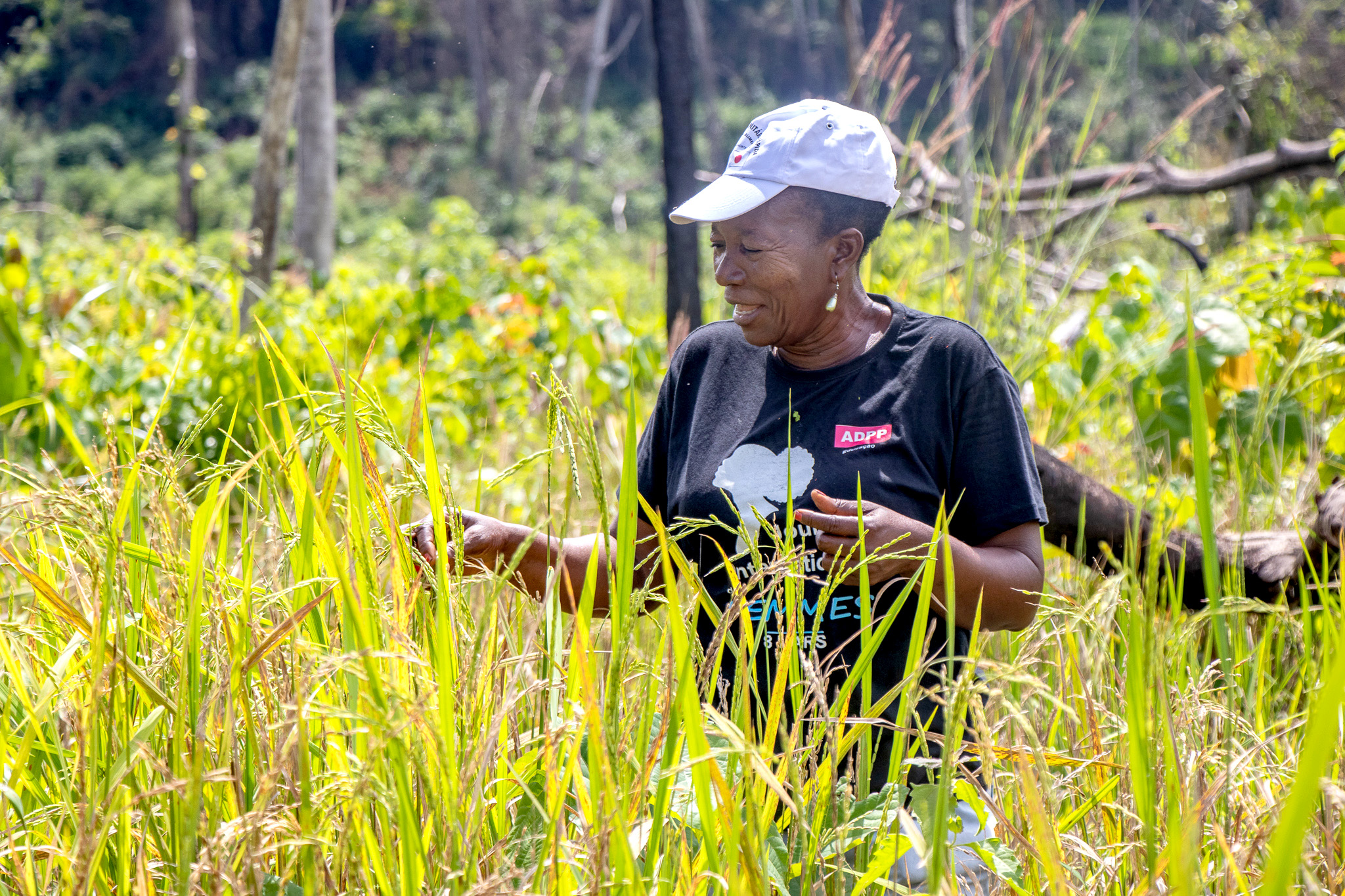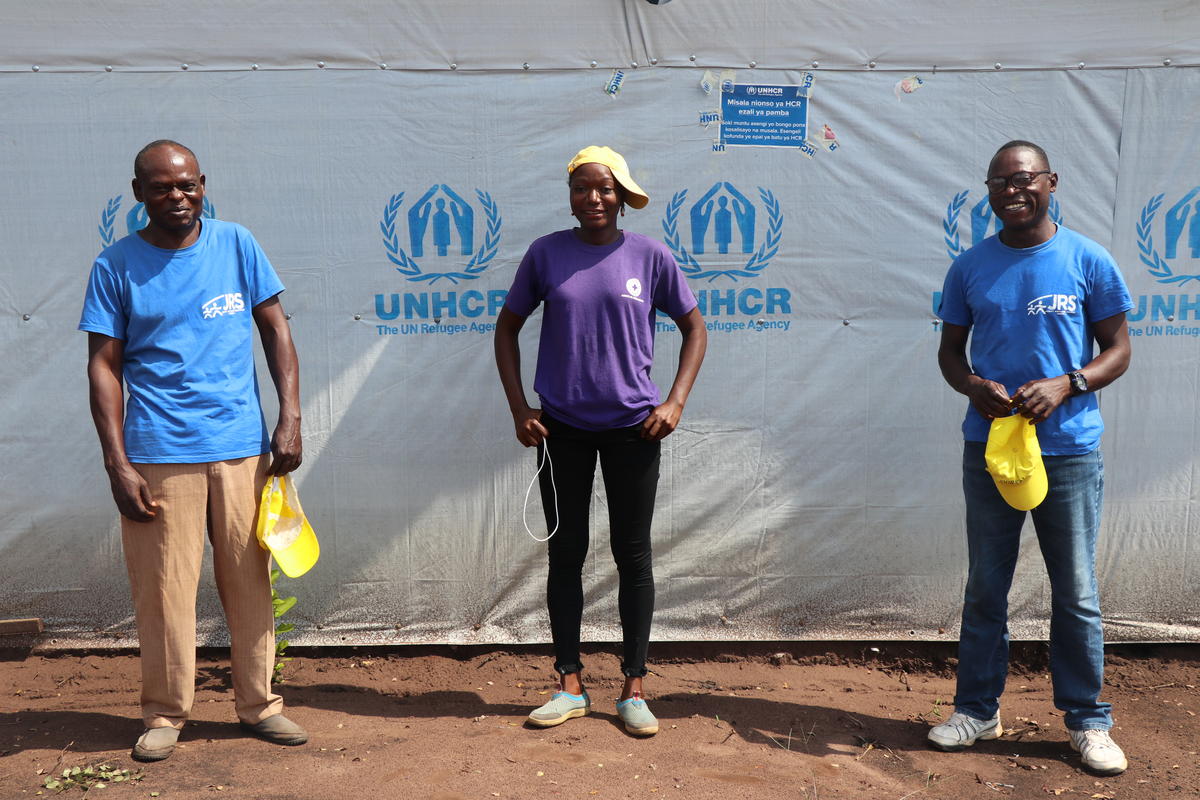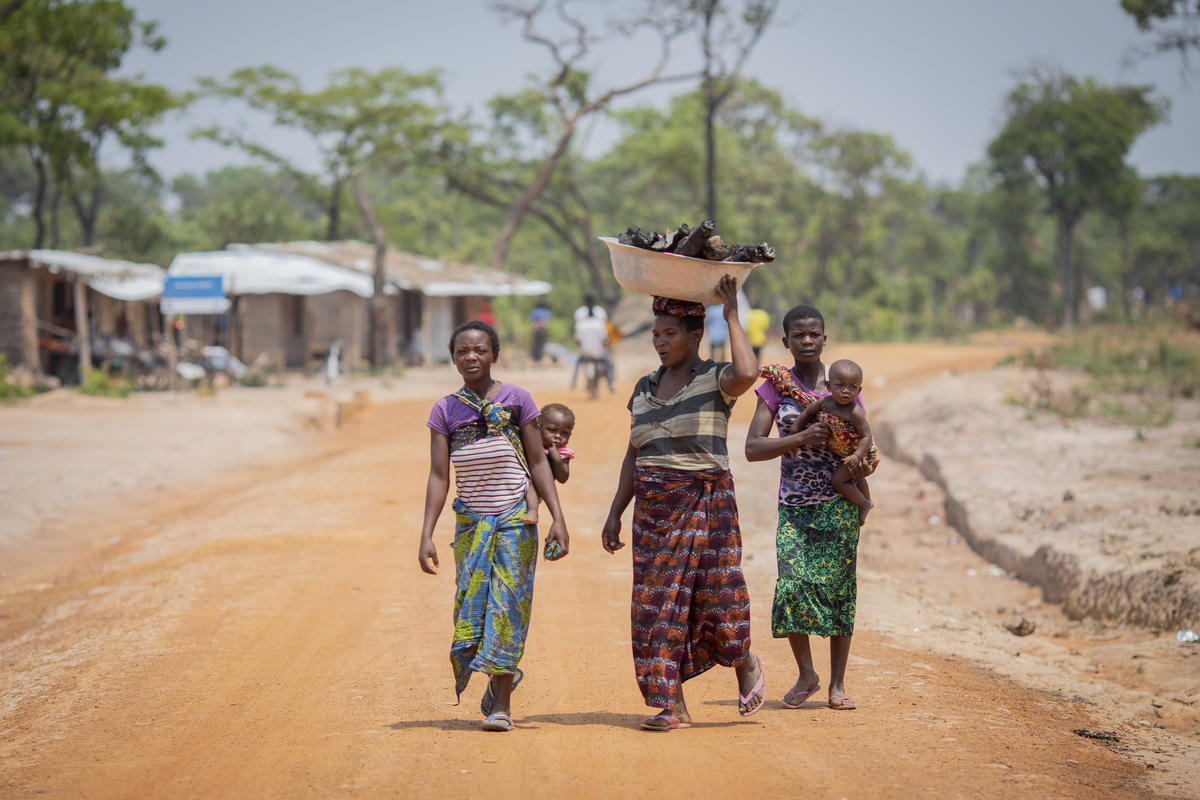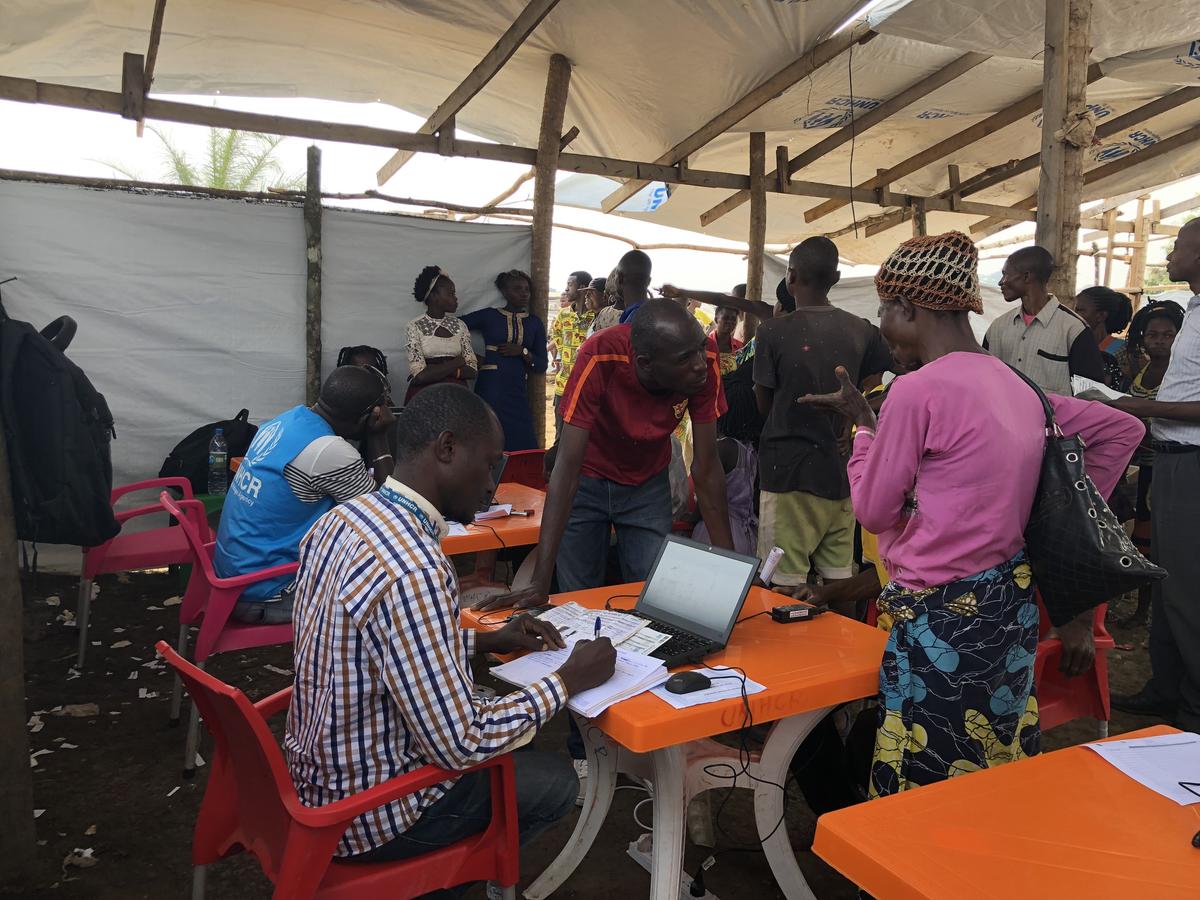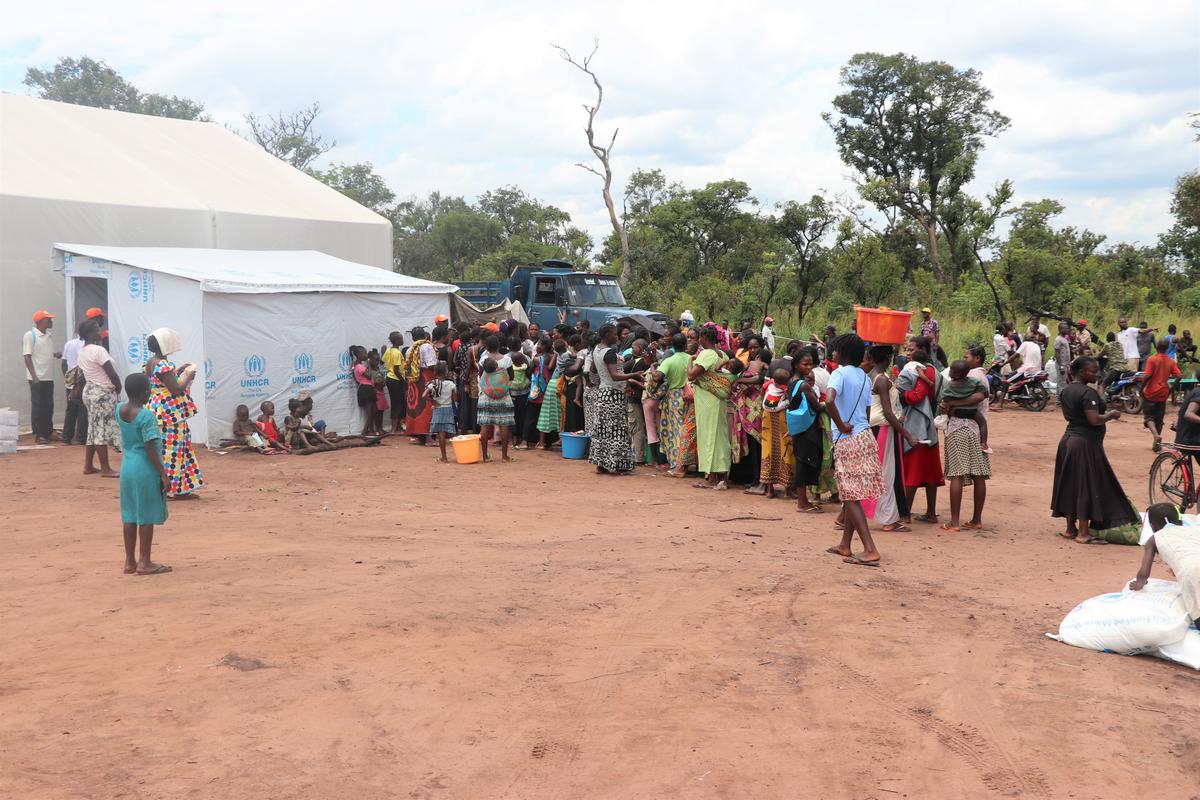UNHCR pledges basic assistance for spontaneous returns to Angola
UNHCR pledges basic assistance for spontaneous returns to Angola

LUANDA, Angola, July 5 (UNHCR) - More than 20,000 Angolan refugees in Zambia and the Democratic Republic of the Congo have returned home spontaneously since March. UNHCR estimates that up to 80,000 from the region could head home by year end, and is gathering close to $2 million to meet their immediate needs.
Some 4,000 Angolans from UNHCR camps have left Zambia since the death of Jonas Savimbi, leader of the National Union for the Total Independence of Angola (UNITA), in February and the subsequent cease-fire agreement between UNITA and the Angolan government in early April. They have been joined by at least 6,000 who had spontaneously settled in rural and urban areas of western Zambia.
Most of them are believed to be headed for Moxico province in Angola, just across the border from western Zambia. According to UNHCR staff in Zambia, the movements are continuous, albeit on a small scale.
Another 10,000 Angolans have returned from the Democratic Republic of the Congo, mainly to Uíge province. The UN refugee agency estimates that as many as 80,000 Angolan refugees from the region could return home spontaneously before the end of this year.
Hundreds of thousands of Angolans fled their country during 27 years of civil war. Currently, there are some 470,000 Angolan refugees in the region, mainly in the Democratic Republic of the Congo, Zambia and Namibia.
In Zambia, UNHCR has been holding regular meetings with refugee leaders in its camps to update them on the situation in Angola. The leaders noted that recent refugees seem to be eager to go home quickly. Long-time refugees, however, are more sceptical on such issues as weapons withdrawal, demining activities, roads, adequate food supplies, health facilities and operational schools. As such, they are adopting a wait-and-see attitude, preferring to go home only under a UNHCR-assisted voluntary repatriation programme.
In June, UNHCR's Assistant High Commissioner Kamel Morjane travelled to the region to review prospects for the future repatriation of Angolan refugees. He met with senior government officials, the diplomatic community and non-governmental organisations, and visited Zaïre and Uíge provinces, two of the main future returnee areas in Angola.
He ended the trip with a general sense of optimism, noting that "peace now seems to be irreversible".
Still, the humanitarian needs in Angola are enormous and have ironically increased since the end of the war as relief workers regain access to areas previously held by rebels. The country is plagued by millions of landmines, and much of the infrastructure has been destroyed. The government hopes to reintegrate some 72,000 former UNITA soldiers presently housed in camps, and 225,000 of their family members, back into civilian life. It is also working to resettle some 4 million displaced people who live in total destitution.
UNHCR and the Angolan government agree that any repatriation must be done in a "gradual and rational way" so as to avoid the congestion and overburdening of extremely poor and destroyed return areas.
The refugee agency is adopting a cautious approach to repatriation, which it says will take effect if the situation continues to evolve positively. In the meantime, it plans to reinforce its presence, staff and material resources in the four main provinces of return - Zaïre, Uíge, Moxico and Cuando Cubango. At the same time, UNHCR maintains that refugees must continue to enjoy international protection in their present countries of asylum, adding that it will assist the spontaneous returnees in Angola while preparing the ground for a possible future organised return, but not before 2003.
UNHCR also plans to step up its presence at the border in order to have an efficient monitoring mechanism to record spontaneous returns, procure relief items within Angola, gather critically-needed information about the profiles of Angolan refugee populations abroad, and gradually implement community-based programmes in areas of return.
To this end, the agency is gathering funds for an initial budget of $1.87 million to cover the most urgent needs and priority interventions. These include the establishment of four offices in the major areas of return, as well as the provision of very basic assistance and rehabilitation work for returnees.
A comprehensive repatriation and reintegration budget covering 2002-2004 will be issued in September this year and will be funded through a supplementary appeal.



